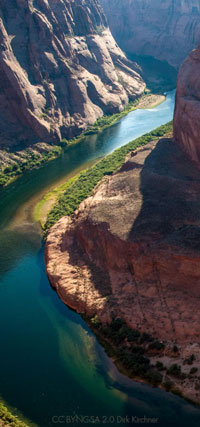These retreats provide an opportunity to explore the power of a silent meditation retreat while immersed in the beauty and wildness of nature. We participate in an age-old tradition of going into the wilderness as a support for spiritual practice and inquiry. Immersed in nature, we use meditation practices to increase our receptivity to interconnectedness, preciousness and to the beauty that surrounds us. Through our enhanced openness and quiet, we have the opportunity to explore deeply the truth of our own nature. We cultivate a supportive community as we explore this inner and outer journey. Each retreat has it's own spectacular setting, and develops its own particular character that is in response to that time, place, and group of participants.
The retreats we offer are Buddhist meditation retreats, combining sitting practice with walking, movement, and special practices informed by the particular retreat, conditions and environment. Basic meditation instruction is always given and guidance is provided throughout the retreat. These retreats are suitable for both beginning and experienced meditators. Each day begins by rising early, sitting before breakfast, with a mix of sitting and walking practices throughout the day, including times of instruction, dharma talks, and, for non-stationary retreats, the daily travel requirements of the particular trip (see individual retreat descriptions). On trips that do move camps (the backpacking and canoe trips), there will be layover days to encourage us to further slow down and allow the practice to deepen. Retreats are structured to support the deepening of practice as a group, while also allowing for time alone in nature.

All retreats are held in Noble Silence and will require a commitment by participants to this practice. This silence, supported by all, allows the attention to turn inward; in the service of guiding this inward journey, there will also be times for check-ins, questions and answers, and interviews with the teacher(s). On the longer retreats, near the end, there will usually be an opportunity for 36 hours of solo practice. This is an opportunity to allow each participant to find his or her own rhythm and relationship with the more-than-human world. Care and safety are maintained throughout.

On each retreat, we emphasize nature as our teacher, and explore the special opportunities provided us to open to the Dharma. The peace that comes from spending time in the wild provides a natural support for cultivating tranquility and joy in our hearts and clarity in our meditation. Sitting in the beauty of the nature, gives us ready access to rapture, that quality of delighted interest and awe, and one of the seven factors of enlightenment. On many meditation retreats, we're asked not to look around; on these retreats, we encourage opening to all our senses and delighting in what we experience. Each teacher brings their own experiences and practices as offerings. While predominantly from the Theravada or Tibetan Buddhist traditions, some practices and teachings draw more directly on indigenous earth based teachings. See teachers for more details.
PRECEPTS
On each retreat we will undertake to follow the five traditional lay precepts of non-harming during our time together, forming a reliable basis for mutual trust in our community:
1. To refrain from killing and from other actions that harm oneself or others.
2. To refrain from stealing, from taking anything that is not freely given.
3. To refrain from sexual activity during the retreat.
4. To refrain from unnecessary speech, and maintain noble silence.
5. To refrain from consuming alcohol, illegal drugs, or other intoxicants.
DANA & RETREAT COST
The Buddha asked that the teaching of the Dharma be offered freely, without charge, since it is of infinite value, beyond any price that could be put on it. Thus, the tradition of Dana (a Pali word), or mutual giving, has supported Buddhist cultures for 2500 years. In Asia the monks and nuns offer the teaching, and the lay people support the monastery and fill the monks' begging bowls each morning as they walk through the village on alms rounds. It is a beautiful exchange, in which the hearts of both giver and receiver are opened in joy and gratitude, and love flows between them.